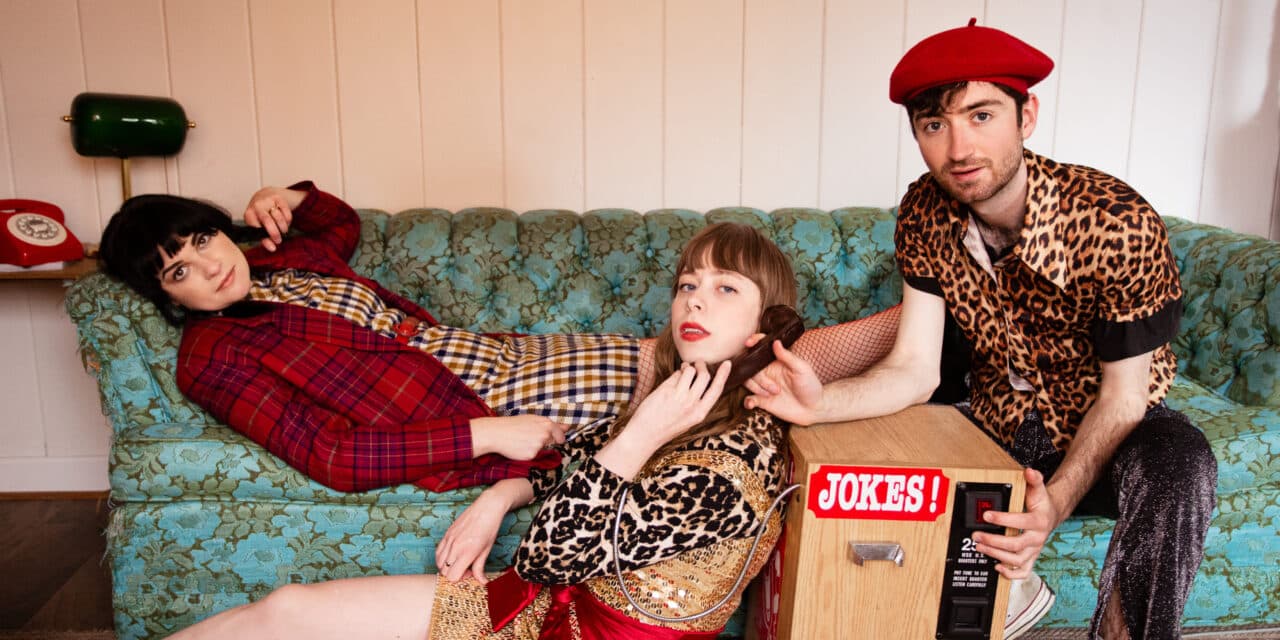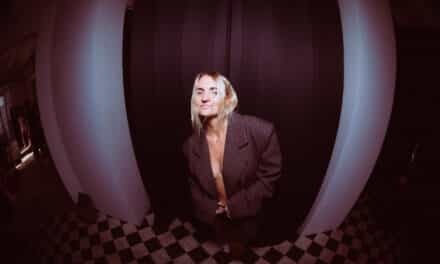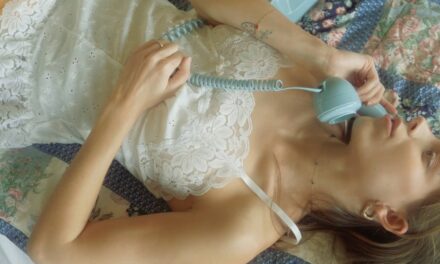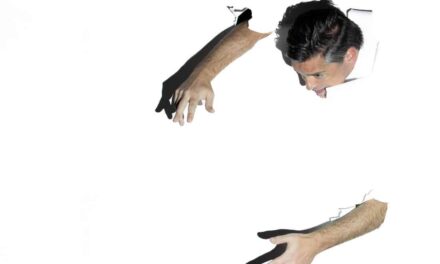Under the Radar has raved about Durham, NC-based Viv & Riley’s “warmth and organic joy [on] welcome folk delights.” They’ll be touring this spring with the Wood Brothers. First single “Where’d All The Time Go” (originally by Dr. Dog) comes out May 16 with “Ashes of American Flags” (Wilco) out June 13 and “Kissing Other People” (Lennon Stella) July 11.
The harmonies on this thing are magic. It initially presents as a folk album, but it includes a fair amount of indie rock sensibility and experimentation, from the musicians trying instruments less familiar to themselves to unconventional recording methods (a ‘90s camcorder used to capture room audio, abstract sounds in the Wilco song, off-kilter guitar sound on the Dr. Dog tune, etc.). Many of the tracks are drawn from early takes, with the energy and ideas fresh.
The band decamped to a studio in the Connecticut countryside but ended up making the entire record in the accompany midcentury modern house, never setting foot in the actual studio, recorded often in the living room and even the indoor pool when they needed extra natural reverb. The idea began when the acts toured together and asked each other what non-folk music they each listened to in the van, and that led directly to a few of the song choices on here, including Lennon Stella and Waylon Payne. “Hold On Magnolia” holds special significance to Riley, as he went to Oberlin, where Jason Molina also attended.
“Ashes of American Flags” feels like a fever dream—half-mournful, half-mythic. What drew you to this particular Wilco song, and how did you approach unraveling its emotional code together?
Riley: Love that description of Ashes. It evades an exact topic, it more speaks in these potent phrases and visuals that stick with you. It feels frustrated with both one’s self and the world around. I think we all tapped into that angst when recording this one.
You recorded most of this album not in the studio, but in the accompanying midcentury house—including a pool room reverb moment?! What did that weird, domestic setting unlock creatively that a polished studio might not have?
Viv: When we arrived at our producer/engineer Greg’s house, we immediately set up shop on the floor of his carpeted living room to practice our songs. While we were working things up, Greg slyly started setting up mics around us. We ended up staying there all week, though eventually we got up off the ground and into some chairs. We took a tour of his actual studio just a little ways down the road, and while we toyed with the idea of tracking some stuff there, we ultimately decided that the homey relaxed environment was exactly what the record needed. In his house, we were just three friends hanging out, playing music together, and having fun. Most days we’d take a dip in the indoor pool (the glass doors of which connected directly to the living room), and even used it to record some reverb on the album.
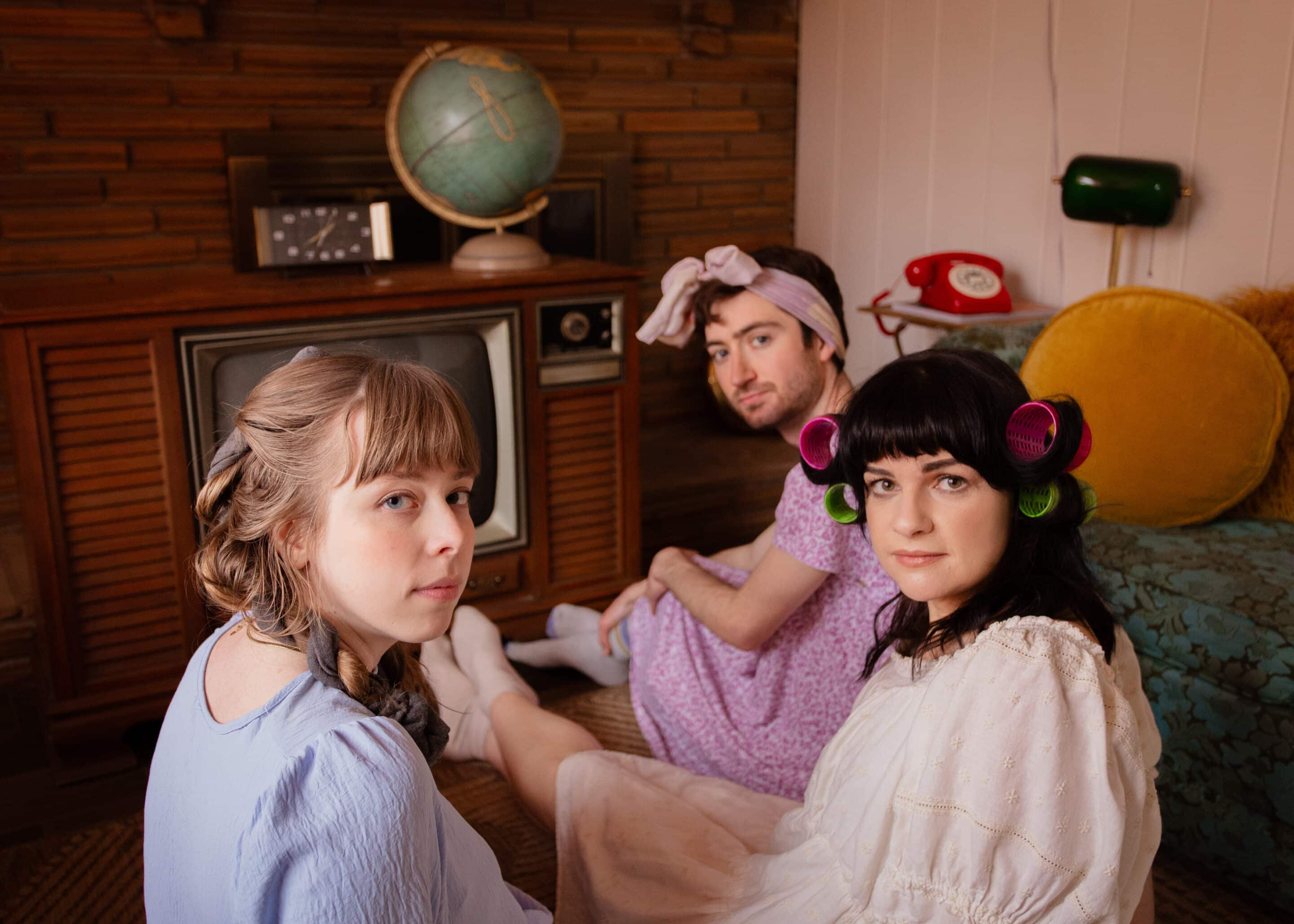
Rachel, you mentioned Wilco being “royalty” growing up in Chicago. Can you unpack the nostalgic weight of that last line—“all my lies are always wishes”? What part of your past did it tap into?
Riley described the tracking process as “chaotic”—multiple guitars, a last-minute switch to high-strung tuning, and your first-ever recorded drum take. Was that chaos freeing? Did it let you bypass overthinking and just feel?
Viv: While the record was largely recorded live with three acoustic instruments, there was also totally an element of chaos and creativity that made its way into the songs. Rachel experimented with an electric guitar solo, Riley and Rachel tried their hand at some Moog bass parts, and I played a stripped down drum kit. Part of the fun of this record was trying new things. Just because I’m not a professional drummer doesn’t mean I can’t give it a whack, and just because we don’t typically play electric instruments or synthesizers doesn’t mean they didn’t have a place on the record. It definitely felt freeing to just play what felt right and fun in the moment.
Riley, you described the tracking process as “chaotic”—multiple guitars, a last-minute switch to high-strung tuning, and Viv’s first-ever recorded drum take. Was that chaos freeing? Did it let you bypass overthinking and just feel?
The album reads folk on the surface, but there’s this indie-experimental current running through it—processed fiddles, off-kilter guitars, camcorder room mics. How did your collaboration give you both permission to get weird?
Viv: Working with Greg Griffith led to a lot of the indie-experimental undercurrent you’re sensing. Greg has a deep background in the punk-rock music scene, both as a musician and an engineer/producer. It was exciting to combine his sensibilities with two folk/americana groups. He loved and believed in the music and approached it in slightly different ways than maybe a folk producer would, which made for really interesting recordings. He was able to capture some of the rawness in our performances and used some interesting recording techniques, from getting reverb from a plate in his bomb shelter basement, to layering a vintage camcorder mic in the recordings. He also encouraged us to try new instruments and ideas and to not be afraid to get weird.
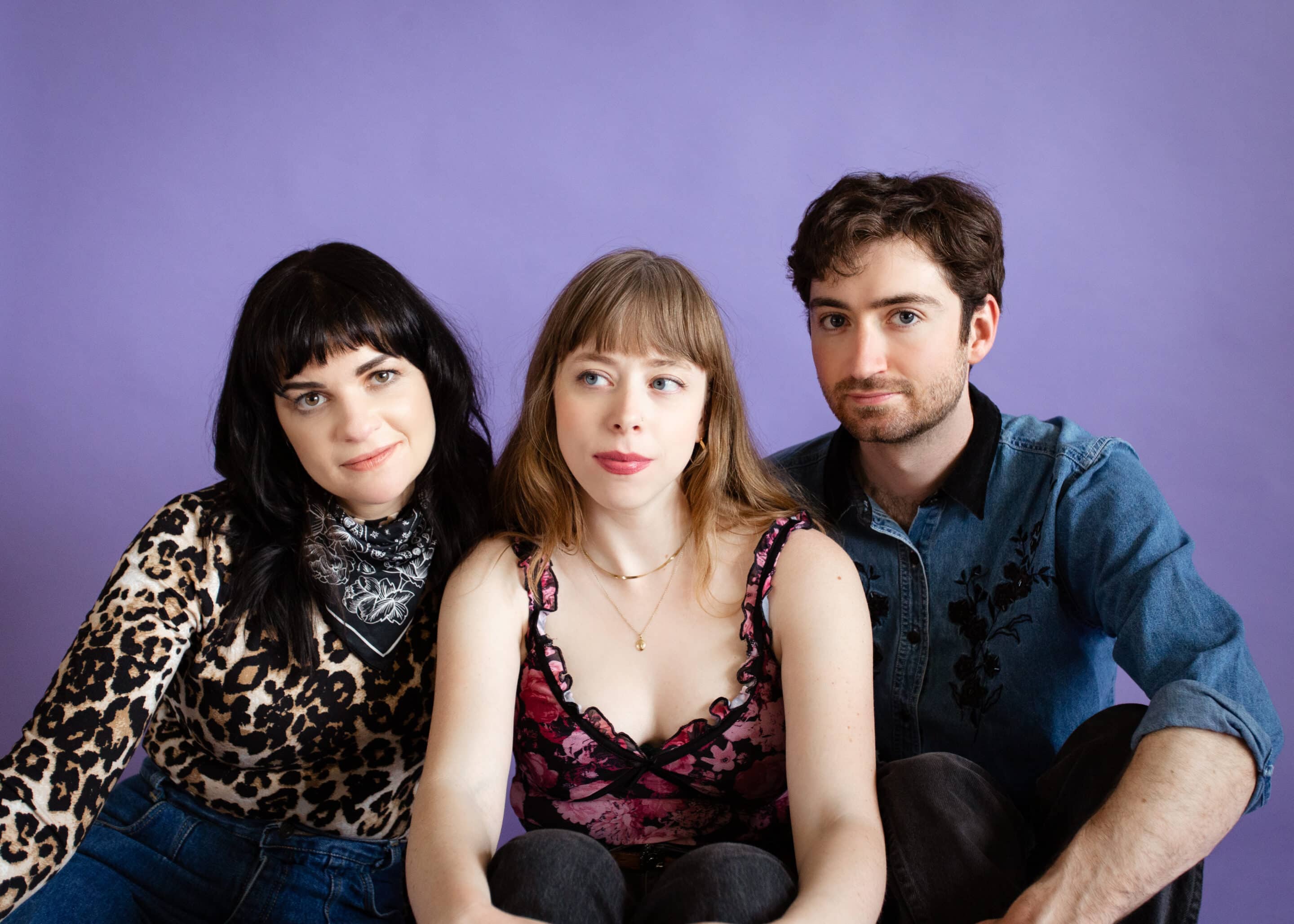
The album reads folk on the surface, but there’s this indie-experimental current running through it—processed fiddles, off-kilter guitars, camcorder room mics. How did your collaboration give you both permission to get weird?
What was the vibe like in the van when you first started swapping non-folk songs? Was there a moment where someone played a track that made you think, “Wait… we have to cover this”?
Viv: Oh yes. It wasn’t necessarily the song that came first but the artists. Riley and I had been obsessed with the album Blue Eyes, The Harlot, The Queer, The Pusher, and Me by Waylon Payne for months. I had learned three songs from that album already. When we put it on for Rachel we discovered she was also a fan! ‘How fun would it be to play one of those songs together?’ The other album I remember us all being really excited about on the road was Lennon Stella’s album Three. Two. One. There are SO many ear worms on there. I think that album was what really sparked the idea for this project. When touring as a trio, it was easy to imagine working up folk or traditional covers, but what would happen if we tried to cover all kinds of songs we like from all kinds of genres? Playing a pop song like Kissing Other People felt like exciting and new territory for us.
What was the vibe like in the van when you first started swapping non-folk songs? Was there a moment where someone played a track that made you think, “Wait… we have to cover this”?
There’s something sacred about early takes—the first spark before self-consciousness kicks in. Was there a specific track on the album where the first take felt so raw you had to keep it?
Riley: The title track, Kissing Other People, falls into that category I think. It was the first thing we tried, sitting around on the floor (as Viv mentioned) as Greg was getting sounds. It was before we were trying in any way, we just thought we were practicing and mics started to appear around us. The take was captured and saved before I realized that we were actually trying to do anything. I think a good producer is a good sneak attacker, same as a doctor who has to give you a shot, you don’t realize it’s happened until it’s over.
There’s something sacred about early takes—the first spark before self-consciousness kicks in. Was there a specific track on the album where the first take felt so raw you had to keep it?
Let’s talk “Hold On Magnolia.” Riley, you mentioned its Oberlin connection and Molina’s legacy. Did revisiting that song feel like paying homage or like confronting a part of yourself you hadn’t seen in a while?
Riley: I find it eerie cool to really know a place that others (particularly musicians) have trod. One instance for sure is Jason Molina and NE Ohio. After spending time in Lorain County (in mostly Oberlin but also Elyria and Lorain), Molina’s songs conjure memories of the long winters and the country roads, Lake Erie and the Vermillion River valley. And also, Oberlin spots like WOBC, and Hales Gym, and the dorms and coops. For me, his songs ooze the energy of an Oberlin that I felt fleeting even as I was there, the funkiness and dark weird energy getting a bit smoothed out and shined away. I hope it continues to live on. To your question, confronting may be a bit of a strong word, but facilitating the visit of an old part of myself seems right.
Let’s talk “Hold On Magnolia.” Riley, you mentioned its Oberlin connection and Molina’s legacy. Did revisiting that song feel like paying homage or like confronting a part of yourself you hadn’t seen in a while?
You’ve both built reputations as fearless songwriters—how did stepping into someone else’s song change your dynamic? Did it make collaboration easier… or more exposed?
Viv: For me, it felt so refreshing to step into someone else’s songs for a little while. In my band Viv & Riley, we do almost entirely our own songs. Don’t get me wrong, I love songwriting, but it’s much of yourself, your own mind and way of thinking. We could have made a record with some of our originals, some of Rachel’s originals, even some co-writes. But making an album of entirely covers allowed us to be on new ground, to come at it from a new angle. We could all show up authentically as ourselves and create a truly new collaboration between the three of us as musicians rather than as existing bands. It allowed us to just make music together and to share some songs we find inspiring.
You’ve both built reputations as fearless songwriters—how did stepping into someone else’s song change your dynamic? Did it make collaboration easier… or more exposed?
If Kissing Other Ppl is the sound of friends and collaborators showing each other their secret playlists—what’s one unexpected artist that almost made the cut but didn’t?
Magicians never reveal their future illusions, Michael.

